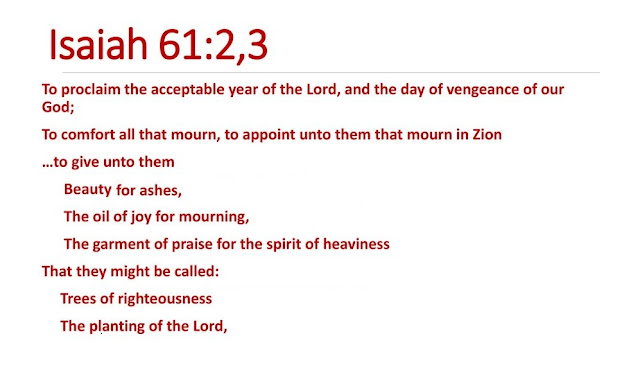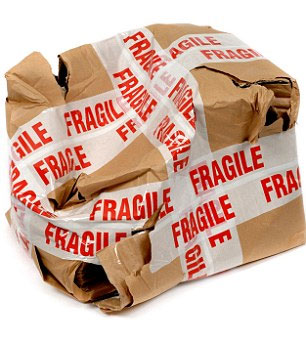Have you ever put a jigsaw puzzle together?
Sometimes you find two or three pieces that fit together, and suddenly that part of the picture makes sense, when a moment ago, it looked completely different.
I’m sort of thinking along these lines today. Would you think this through with me? This will likely get uncomfortable; brace yourself (or skip it and move on).
Revelation chapter 20 is in the middle of what appears to be The Epic Judgment Scene at the end of time. In verse 12 is this statement: “The dead were judged according to what they had done as recorded in the books.”
That’s the scene that we’ve all read about, heard preached about, where people are judged for all the good they’ve done. This is the verse that gives rise to the silly idea that God is going to somehow compare the good that we’ve done against the bad that we’ve done.
We know better than to think that the good we’ve done outweighing the bad we’ve done is the way to reach heaven. We know better, but there’s this statement: “The dead were judged according to what they had done as recorded in the books.”
We know better than to think that the good we’ve done outweighing the bad we’ve done is the way to reach heaven. We know better, but there’s this statement: “The dead were judged according to what they had done as recorded in the books.”
It’s like that weird piece of the puzzle that just doesn’t seem to fit in with other pieces of the same color. There’s always one piece like that, isn’t there?
 So let’s look at some other pieces of the puzzle. Let’s lay them all out together, and see where they lead us:
So let’s look at some other pieces of the puzzle. Let’s lay them all out together, and see where they lead us: • “The dead were judged according to what they had done as recorded in the books.” [Revelation 20:12] We’ve seen that one. Then add this one:
• “God is love.” [1 John 4:8 and 16] This isn’t terribly controversial. We knew that, too. Now add this piece in between those two pieces:
• “Love keeps no record of wrongs.” [1 Corinthians 13:5] Now fit these pieces together with me, and see how these work out:
Since God is love (see above), it seems to follow that God would keep no record of wrongs.
And if that’s true, it means that the books that people are judged by, the books that list what everyone has done, they maybe have no record of wrongs.
And if they have no record of wrongs, then they must be only full of the good things that folks have done. That’s a new and different thought. But that’s what these verses say, isn’t it? I know it’s not the harsh judgmental image of God that some people insist on, but I think that might be the God of someone like Jesus.
Now, some people’s books might be thicker than others.
I would expect that Mother Teresa’s book is pretty immense; she did a lot of good. And she maybe needed less “wrongs” erased out of her book. Just a thought.
Osama bin Laden’s book is on that shelf. I’m absolutely confident that there is some good recorded in his book, though he was famous on the earth for the other kind of things, the kind of things of which no record is kept.
My book is there, and perhaps it’s between theirs. I have to say that I am not overly offended by the idea that my book may be missing some of the things that I’ve done in my life.
Yes, Scripture declares the dead were judged by what was recorded in the books, and at least for the moment, I’m suspecting that this means that the dead were judged by the good that they did in their lives, not by the wrong that they did.
That sounds like an awards ceremony of some sort. Everybody gets a prize. Some are big, some are small.
It reminds me of Paul’s words:
“If anyone builds on this foundation using gold, silver, costly stones, wood, hay or straw, their work will be shown for what it is, because the Day will bring it to light. It will be revealed with fire, and the fire will test the quality of each person's work. If what has been built survives, the builder will receive a reward. If it is burned up, the builder will suffer loss but yet will be saved--even though only as one escaping through the flames.” [1 Corinthians 3:12-15]
Now if you know me, you’ll know that I often insist on reading things in context, and the context of this statement in Revelation 20 is fascinating. There was another Book on the table in that scene, the Book of Life, and that’s where the real judgement happened: was their name in that book?
“Anyone whose name was not found written in the book of life was thrown into the lake of fire.” [Revelation 20:15] That’s another story, another judgement, of course.
It’s a big deal, but it’s not what I’m looking at today.
The first judgement, the judgement based on “what they had done as recorded in the books,” I’m wondering if that judgement is based on records that “keep no record of wrongs” because they’re kept by the God who is Love. Hmm…
And if my Father keeps no records of wrong in my book, and if it’s true that “with the measure you use, it will be measured to you—and even more,” then I have several reasons to give up my records of who’s done right and who’s done wrong in my perception.
This way of recordkeeping will change my personal relationships, of course, but I’m suddenly impressed that this will affect how I read the news. Love keeps no record of wrong.
Hmm. This might be an interesting season.







